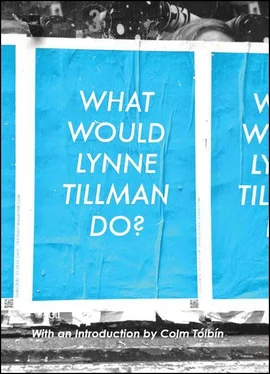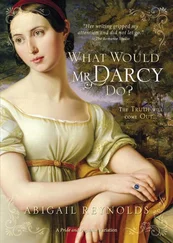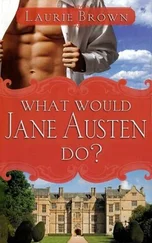Bowles quickly replied that he’d be happy to be in the anthology. I’d asked for original material; he wrote that he’d send me some, and did. After another letter or two — I’ve kept all of his letters — I received one in which he inquired if I were a man or a woman, and how he should address me — Miss, Mrs. or Mr.? Otherwise he was “obliged to use Dear Lynne Merrill Tillman.” I wrote that I was female, in a letter I hope is lost, and he thanked me in his next letter for setting him straight.
The anthology’s publication date kept being postponed, and everything Bowles had given me appeared elsewhere. Finally he wrote that he had no more new or unpublished work to contribute except some poems he’d written in the late 1920s or early 1930s, and, he said, they weren’t very good. I wrote that they’d be included even if they weren’t very good, because I had to have him in the book. But, I asked, didn’t he have anything else, maybe some letters he’d written?
Bowles sent two letters he wrote his mother when he first went to Europe in 1931 with composer Aaron Copland. One told the hilariously anxious tale of his and Copland’s nearly missing a boat from Spain to Morocco. The other was written from the south of France, where he was visiting Gertrude Stein and Alice B. Toklas for the first time. I was overwhelmed by my good luck.
Encouraged by our friendly, frequent correspondence — it was now 1976 or 1977 and I was in New York — I asked him for some writing from Jane Bowles. Requesting her work was even harder than asking for his. She was dying when I began the project, and I didn’t feel comfortable asking him for her work then or right after she’d died. I didn’t want Paul to feel taken advantage of. I thought her death must have been so painful for him that even mentioning her name would upset him. I hesitated a long time. I didn’t appreciate then that people usually don’t want the people they love to be forgotten. Jane Bowles is often and usually forgotten.
I wanted her desperately. Her novel, Two Serious Ladies , was a revelation — a work of genius, unique, subversive. These terms are overused, and usually misused, but are true of this audacious, brilliantly written novel, this masquerade, comedy, tragedy, with its anarchic, singular views of sexuality, marriage, femininity, masculinity, American culture, exoticism. Jane Bowles ignored the worn lines between conscious and unconscious life; she beggared the realist novel with writing indifferent to prosaic notions of reality. Her dialogue is the most particular and idiosyncratic in American literature, as peculiar and condensed as speech in jokes and dreams. I loved and respected Paul Bowles’s The Sheltering Sky , “He of the Assembly,” and “Pages from Cold Point.” But Jane Bowles’s novel shifted the ground for me — she made the world of writing move. Move over and sigh.
Paul Bowles sent two fragments from a notebook of hers, just a few paragraphs. I was thrilled. With the Bowleses’ contributions, I thought, the anthology had a reason to exist. But it was abandoned by its first publisher (the novelty imprint was dissolved) and then again, in about 1980, by its second, a friend who was a small press publisher. One of Jane Bowles’s paragraphs was later quoted in Millicent Dillon’s excellent biography of her, A Little Original Sin , but the other — about getting married and loneliness — has still not been published. Of it Paul Bowles wrote, “I find it a complete mystery, myself.”
Our correspondence continued. We wrote about domestic life — collapsing roofs — and dreams we had. He typed his letters on white, crinkly airmail paper. His signature, in black pen, was neat and without any flourishes. I have a couple of letters on green airmail paper written entirely in his legible hand. In one he wrote: “Place seems to have become unimportant.”
The anthology receded from consciousness, and I threw myself into writing and co-directing an independent feature film called Committed . It was released in 1984, and I was, too, to finish writing Haunted Houses , my first novel, which was published in 1987. On its back cover was a quote from the late Kathy Acker that began: “Lynne Tillman, daughter of Jane Bowles.” Jane Bowles never had any children, and it didn’t occur to me that when the book came out people would think Jane Bowles was my mother. But an acquaintance stopped me on St. Marks Place and said, “I thought your mother was in Florida.” One reviewer wrote that “the author mentioned her mother, Jane Bowles,” in the novel, and it was a problem. Acker plagiarized texts, wrote characters who invented multiple identities, invoked “her” mother and father, and no one knew what was fact or fiction. It was ironically appropriate that she inadvertently bestowed a legend upon me, a fictitious literary genealogy. On bad days I imagined it was the best thing about me.
I sent my novel to Paul Bowles, hoping he wouldn’t be bothered by the quotation about Jane Bowles and me. He read the book, which was very generous of him, more generous than I recognized then. He even liked it. He said it reminded him of a Russian novel, because he confused the protagonists. He didn’t mention the quote, and this lack — and the existence of the quote itself — became another layer in the strange and stealthy background of my journey to him. Even his allusion to a Russian novel seemed part of the confusion of character and characters that preceded me and ensued when I finally arrived in Tangier in August 1987.
I wanted to talk with Bowles in person, because I hoped to make a film of Two Serious Ladies . It would be my homage to Jane Bowles, and maybe it would bring attention to her work. I could picture the book as a film, its bizarre scenes happily haunted by the ghost of director Preston Sturges, its eccentric dialogue delivered by actors like Lily Tomlin (she’d play Miss Goering, one of the two serious ladies). Bowles thought the film rights had been sold years ago, but he couldn’t remember to whom. I found the person I was told was Jane Bowles’s agent, who would presumably know. And so starts a terrible story, one I can tell in expurgated form only, to protect others and also myself from further misunderstanding and even the law.
The agent knew nothing about the rights and actually didn’t have them, yet involved me in discussions over four months about my buying them. In my first visit I explained that it would be a very low-budget film, and in the last the agent announced: I’ve taken a look at the story, and it is a little longer than I thought it was. Actually, it’s longer than her other stories. So I’ll have to ask you for one hundred thousand dollars. Crushed, I left the office.
I was informed by my agent, after she studied the novel’s copyright notice, that the book might be in the public domain. I asked the Library of Congress to do a copyright check, in fact three, and each time the book turned up in the public domain. Still unconvinced, I traveled to Washington, D.C., to that great house of copyrights, where I was brought to a room the size of a football field and shown the file cabinet that held the card for Jane Bowles’s only novel. The copyright had not been renewed by her publisher in 1973—the year she died. They’d forgotten. The book was like Shakespeare, the library told me.
I wrote the script and, with the Library’s authorization, received two grants to make the movie. I was slowly moving forward when one day I received a call from a lawyer who told me his client owned the rights, that the book was not in the public domain in Europe, and that they would stop me from showing the film. Confused, I hired a lawyer, and the sorry story continued.
I met Buffie Johnson, a painter friend of the Bowleses, and visited her in her apartment in SoHo. She offered to introduce me to Paul in Tangier, where she summered. Though I didn’t need an introduction — everyone drops in on him in the afternoon and we’d been corresponding for years — I accepted her offer gratefully, eagerly. Buffie had had an affair with Jane Bowles in the 1940s. Jane dropped her, she said, because Jane liked older women, and she and Jane were the same age. Buffie told me that in those days homosexuals married each other and that Jewish people, like Jane, kept their religion quiet. After I commented that Mrs. Copperfield, in Two Serious Ladies , could have been code for Mrs. Goldberg, Buffie continued, in a lower register, that before the war everyone was a little anti-Semitic.
Читать дальше












